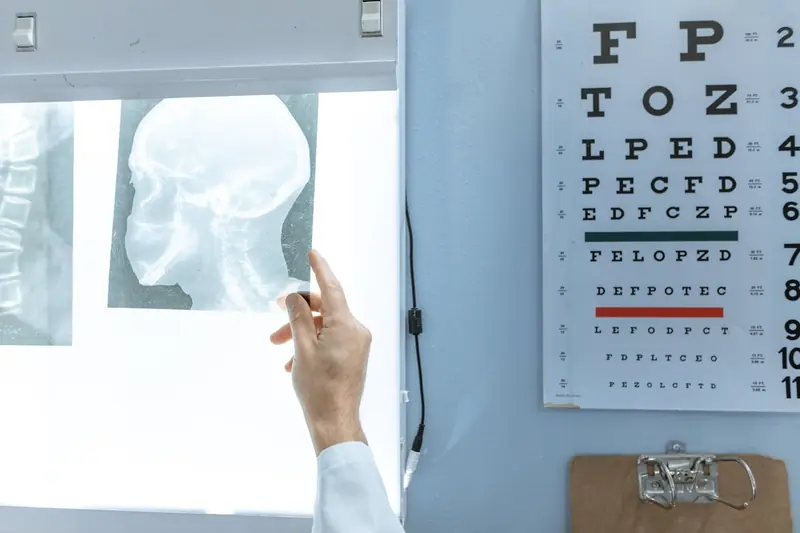
Our eyes can reveal a lot about the health of our brains. Scientists assert that vision problems may serve as an early warning sign of declining cognitive functions.
A recent study by a team from Loughborough University in the UK found that a loss of visual sensitivity can predict dementia up to 12 years before a formal diagnosis is made.
What Did the Researchers Discover?
The researchers examined data from long-term medical observations of 8,623 healthy individuals living in Norfolk, England. By the end of the study, dementia—specifically its most severe form, Alzheimer’s disease—developed in 537 participants. This allowed scientists to identify which factors preceded this diagnosis, according to Science Alert.
At the beginning of the study, the team asked participants to take a visual sensitivity test. During this test, volunteers were instructed to press a button as soon as they saw a triangle forming in a field of moving dots. It turned out that participants who later developed dementia were significantly slower at recognizing the triangle compared to those who did not receive such a diagnosis.
What’s Behind This Connection?
Vision problems may be an early indicator of declining cognitive abilities. Toxic amyloid plaques associated with Alzheimer’s disease can initially affect areas of the brain related to vision, while areas linked to memory become damaged as the disease progresses.
In Alzheimer’s disease, aspects of visual processing, such as the ability to see object outlines (contrast sensitivity) and distinguish certain colors (the ability to perceive the blue-green spectrum is impaired in the early stages of dementia), are affected.
Another early sign of Alzheimer’s is a deficit in “inhibitory control” of eye movements, where distracting stimuli hold attention more effectively. Individuals with cognitive impairments struggle to ignore distracting stimuli, which can manifest as difficulties in controlling eye movements.
Difficulties in Face Recognition
The team also reported that people with dementia struggle to process the faces of new individuals effectively. In other words, they do not follow the typical scanning pattern of a person’s face during conversation.
Healthy individuals scan a new face from the eyes to the nose and mouth to better remember it. Medical professionals specializing in cognitive issues can identify people with dementia: they appear confused, as they do not move their eyes to scan their surroundings, including the faces of new people.
As dementia progresses, it becomes increasingly difficult for patients to recognize others, as they do not scan their features. Thus, the challenge of recognizing people you’ve just met may be linked to ineffective eye movement rather than a memory disorder.
Can Eye Movement Improve Memory?
Previous research on this topic has been inconclusive, but some studies suggest that eye movement may indeed enhance memory. This could explain why people who read more and watch television have better memory and a lower risk of dementia compared to those who do not. When reading or watching TV, our eyes dart across the page or screen.
Individuals who read extensively often spend more time pursuing education. A good education provides a cognitive reserve. Therefore, when brain connections begin to deteriorate with age, these individuals are better protected against cognitive disorders.
Despite these intriguing findings, treatment for memory issues through deliberate eye movements in older adults has not yet been sufficiently explored. According to researchers, until cheaper and easier-to-use devices for tracking eye movement become available, using it as a tool for early dementia diagnosis outside of laboratory settings will not be feasible.
